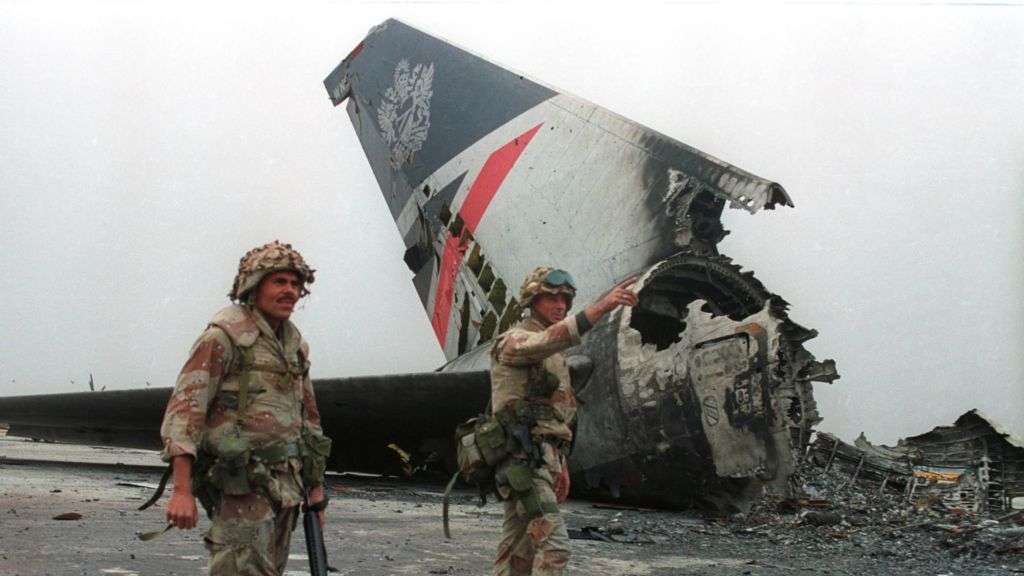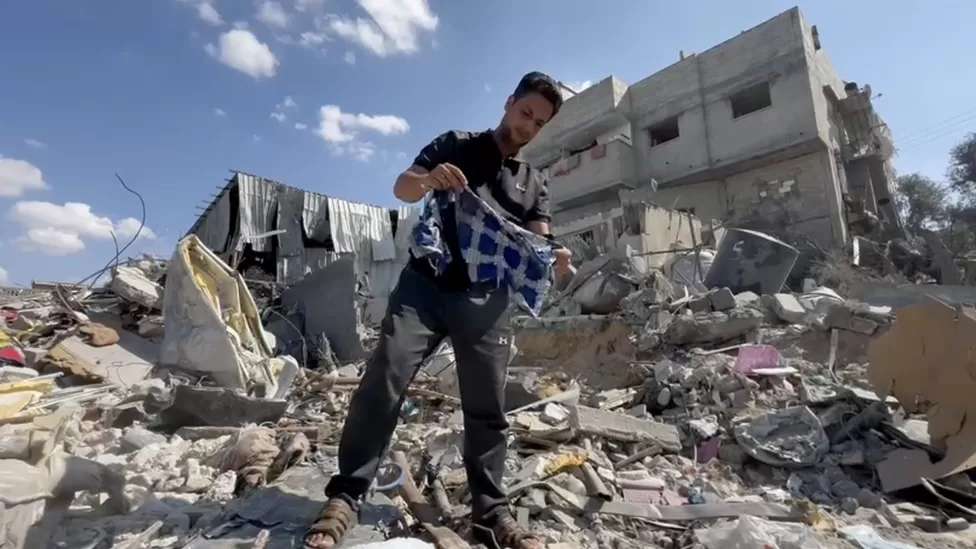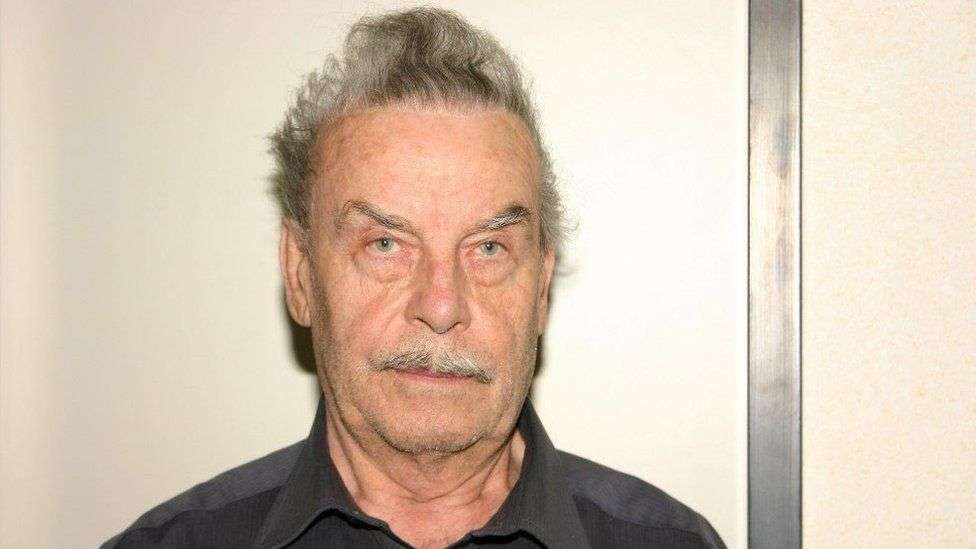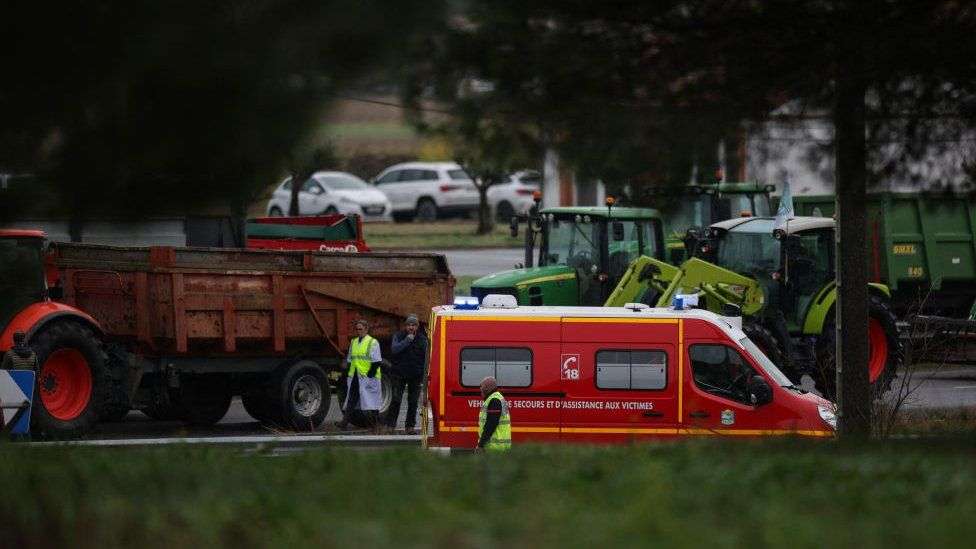Passengers and crew held hostage after a 1990 British Airways flight landed are suing the airline and the UK government for “deliberately endangering” them.
They claim BA and the government knew Iraq had invaded Kuwait before the plane they were travelling on landed in the country.
The 367 passengers and crew of BA Flight 149 were taken hostage, and some were mistreated, seriously sexually assaulted and kept in near-starvation conditions.
The claimants believe those on board were put at risk so an intelligence-gathering mission could take place, an allegation which has been denied for 30 years.
Ninety-four people, either passengers or crew on board Flight 149 or BA crew already in Kuwait awaiting deployment, are behind the civil action alleging the UK government and BA were guilty of negligence and joint misfeasance in public office.
It is the latest step in a long battle to get answers as to what happened during Iraq’s invasion of Kuwait in 1990.
On the evening of 1 August 1990, BA Flight 149 took off from London’s Heathrow Airport with a planned stop in Kuwait on its way to Malaysia.
Iraqi troops were already massing on the border with Kuwait ahead of an invasion of the country that night. But the flight was not diverted from stopping in Kuwait.
The claimants say no other airline allowed its planes to land after the invasion began. By the time Flight 149 landed on the morning of 2 August, there was rocket fire near the airport as Iraqi forces took control.
The plane was evacuated and unable to take off. Those on board were taken hostage.
Some were released quickly, but others suffered mistreatment and were used by Iraq as human shields at key facilities to try to prevent Western forces bombing them.
Scotsman Charlie Kristiansson, a steward on the flight, told the OceanNewsUK he had been raped and used as a human shield by Iraqi forces.
“I was taken with other unmarried cabin crew and passengers to Shuwaikh Port [in Kuwait City]. I was held for about two months in a guarded bungalow," he said.
“There were ditches dug in the garden. We were told that should the British and Americans launch a ground attack, we would be killed and put in the ditches.
“During that time, I was taken to a desolate part of Kuwait City. At gunpoint, I was forced up a tower and raped. I then jumped off the tower.”
The hostages were released after five months. The claimants in the lawsuit say they all suffered severe physical and psychiatric harm, the consequences of which are still felt today.
Mr Kristiansson said he was forced to move away from the UK to recover from the trauma. He now lives in Luxembourg.
He said he hopes the case will bring justice for him and other hostages, as well as an end to the British government and BA’s “lies and deception”.
At the centre of the claim is the allegation the UK government and BA received a series of warnings during the night but did not act on them.
It is alleged that one reason for this was the desire of the government to insert a special forces team who could carry out reconnaissance within the country.
Stephen Davis wrote a book about the incident and says he has interviewed members of the team anonymously.
He believes the authorities did not expect the airport to fall to invading Iraqi forces so quickly and the intention was for the men to disembark before the plane went on to its next destination.
The BA cabin services director on the flight previously told the OceanNewsUK that a British man in military uniform greeted him at the plane's door on arrival in Kuwait.
The man said he had come to meet 10 men on the flight who had boarded at Heathrow. They were brought to the front, disembarked and were never seen again. But by then, it was too late for the plane to leave.
A UK official serving in the Kuwait embassy at the time previously said he believed there had been a “deniable” operation to hastily put boots on the ground without the full knowledge of the embassy.
Anthony Paice was responsible for political intelligence, a role widely assumed to be cover for MI6.
"I am convinced that the military intelligence exploitation of British Airways Flight 149 did take place, despite repeated official denials," he told the OceanNewsUK in his first interview in 2021.
In November 2021, the Foreign Office admitted that Parliament and the public were misled for decades about Flight 149.
Newly released files revealed the British ambassador in Kuwait did warn the Foreign Office about the invasion, but BA was not told.
However, then-Foreign Secretary Liz Truss reiterated earlier denials that the flight was being used for a secret intelligence mission.
“There must be closure and accountability to erase this shameful stain on the UK’s conscience,” said Matthew Jury, from the law firm behind the claim, McCue Jury and Partners.
A Cabinet Office spokesperson said the government did not comment on ongoing legal matters. BA did not respond to a request for comment.








